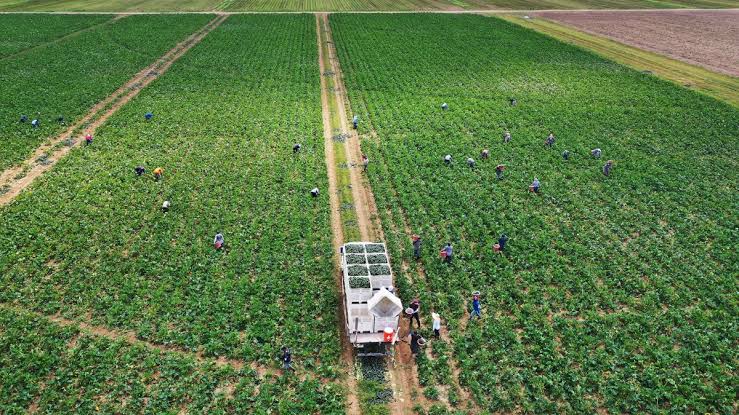To address the current food crisis and the widespread hunger plaguing the nation, the United States has encouraged the Federal Government to prioritize investment in agriculture.
Speaking on Wednesday at Ipao Ekiti, in the Ikole Council area of Ekiti State, David Greene, the US Charge d’Affaires in Nigeria urged Nigeria to utilize its plentiful agricultural potential, fertile soil, and favorable weather endowments to provide food for the populace, generation of job opportunities as well as for export during a visit by the US Embassy to the 15,000 hectare Agbeyewa Farms, a private initiative of Cavista Holdings.
Speaking to the federal and state governments, he said, “We are aware of the food security challenge and the post-harvest losses in Nigeria.” Agbeyewa Farms, he said, has greatly tapped into the economic potentials of large-scale agriculture. I believe that many Nigerians’ lives may be improved with investments and leadership like this.
The US will be active in this field, but I’m not sure exactly what our future plans will entail. We received funding for the production of cocoa in Ekiti and Ikun Diary Farms, among other things.
“USAID sees the future and is providing Nigerian manufacturers working with donors like the World Bank and others with a lot on offer across the board. We must collaborate with Nigerians to benefit the people in light of the economic innovation we are witnessing here, he stated.
Mr. John Olajide, Chairman of Cavista Holdings, stated that the multimillion-naira investment in agriculture was intended to guarantee a sufficient supply of food, enhance nutrition, generate employment opportunities, and promote community development.
In addition to other crops, Olajide stated that the agro-allied farm was interested in cassava, maize, and yam. Plans were in place to start the cassava revolution project in collaboration with the Ekiti State Government in order to meet the growing demand for cassava chips in the export market and minimize post-harvest losses by at least 60%.
“Here, we are experimenting with cassava to assist farmers in increasing their yields. The farmers received those seedlings as a way to better their lot in life, and we included them as our outgrowers on the farm so they could work up to 10 hectares and produce more.
“A key issue is that farmers have difficulty getting their products into markets. In collaboration with the state government, we are working on the first phase of the cassava revolution project, which aims to plant at least 100 hectares of cassava throughout the state.
“Our objective is to eradicate post-harvest loss so that Ekiti farmers can make money from farming.”

